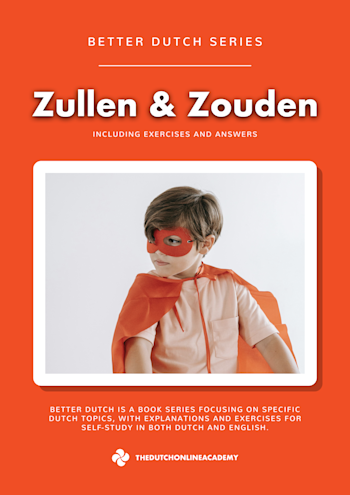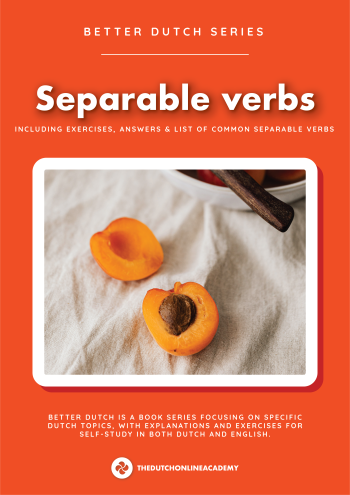Learn the theory
Moeten in Dutch: a Dutch modal verb
The most obvious use of moeten
Moeten means to have to or must. It shows an obligation. Let's look at some examples.
- Je moet melk drinken.
- You have to drink milk.
- We moeten stil blijven.
- We have to remain silent.
Ok, so far so good. But let's suppose you don't have to do something.
Moeten combined with a negation
You might think that you can express things you don't have to do by combining moeten with niet or geen. But this is not entirely the case. Let's look at a few examples again.
- Je moet geen melk drinken.
- You should not drink milk / you must not drink milk.
- We moeten niet stil blijven.
- We shouldn't remain silent / we must not remain silent.
This might be unexpected! Suddenly moeten translates as shouldn't. So it's a very strong advice, not something "you don't have to do".
Note that you can also get this affect from combining zou(den) with moeten. This way the advice is a little bit softer or polite, but still strong.
How to say don't have to?
So, combining moeten with a negation creates a strong advice to not do something. We are left with the question how to translate the following sentence:
- You don't have to drink milk.
This is usually a very positive situation. The person has the option to do something or not. This is where we can use the most positive verb in Dutch language: hoeven.
- Je hoeft geen melk te drinken.
Hoeven is a modal verb, but is often learned later than the others in Dutch courses. Using it will make your Dutch sounds a bit more natural and you will avoid giving accidentally strong advice (moeten + niet/geen) instead of freedom (hoeven)!
Some ideas to keep learning
Would you like to take a look at all modal verbs? Why not watch a short video?
comments
Login to leave a comment



![Learn Dutch with The double infinitive in Dutch [list of auxiliary verbs included]](https://images.ctfassets.net/f8l4gy5qxe00/7fpaN2iBE3h1xS7LRL8c0h/3bbebedc080cbf7eece73424c8e3918f/The_double_infinitive.png?w=350&h=495&q=50&fm=png)